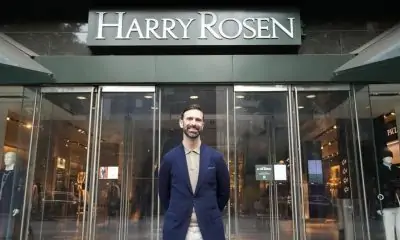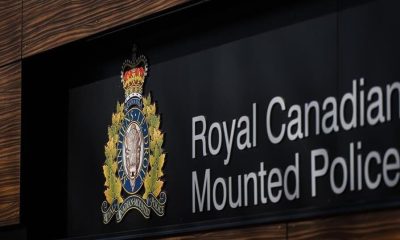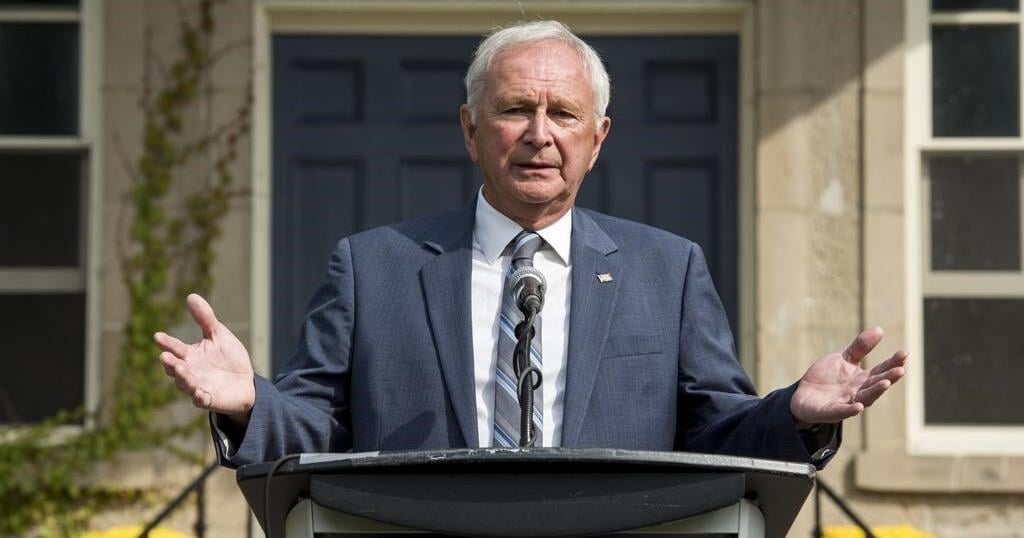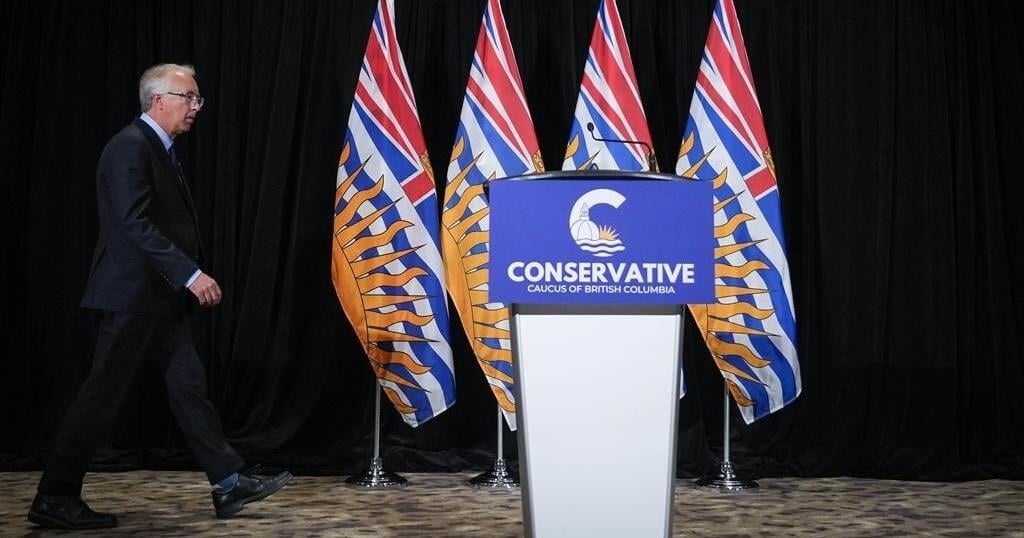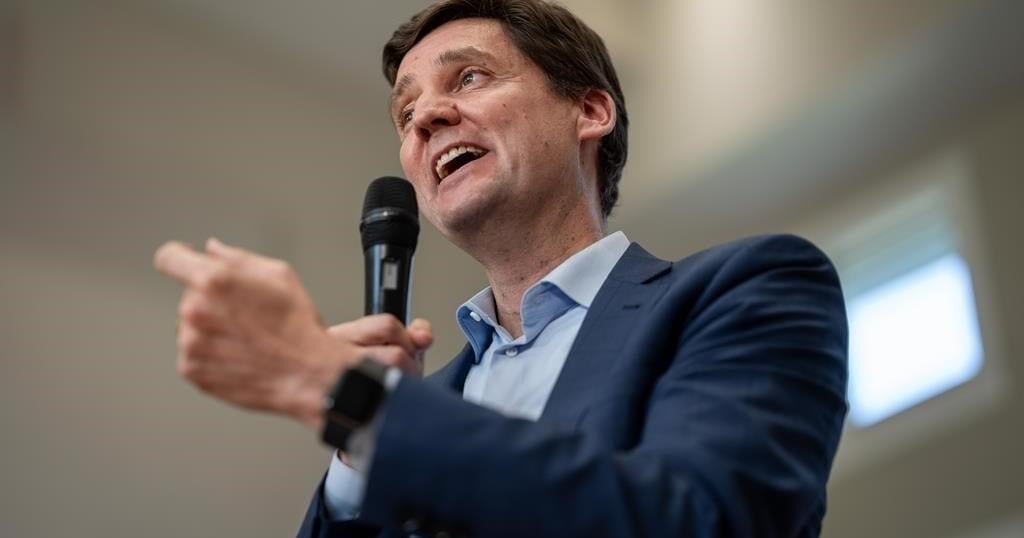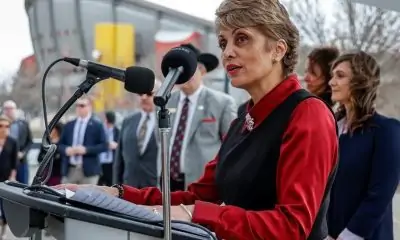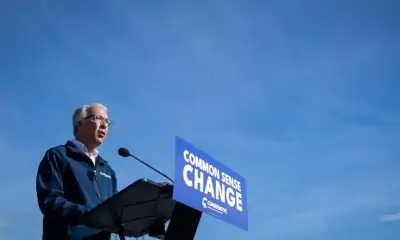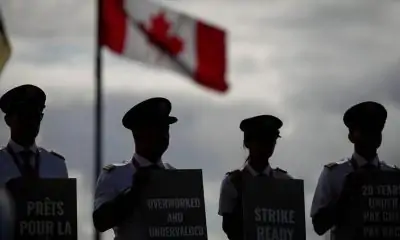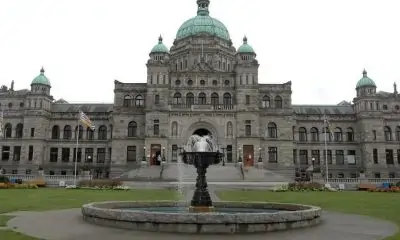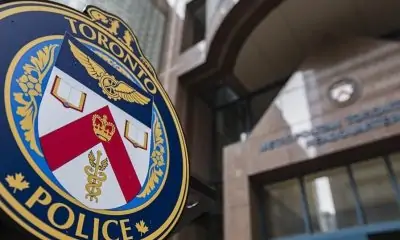VICTORIA – British Columbia Conservative Party Leader John Rustad was at a low point in his life two years ago, both personally and politically.
He was searching for a political home after being booted from the former B.C. Liberal Party caucus.
Rustad, 61, was also grieving back-to-back-to-back family losses and his own health had taken a downturn.
“Twenty-twenty-two was a very difficult year for my family,” said Rustad. “My father passed away in January. My father-in-law passed in February. I had shingles in April and then my mother passed in July.”
Then came August 2022 when Rustad was banished from the B.C. Liberal caucus, now BC United, for his social media support of an outspoken climate change critic.
Times have changed since then.
Rustad said he’s healthy, has had more time to get over the loss of loved ones, and today he’s leading the once marginal B.C. Conservative Party into an election campaign as a serious challenger to the two-term New Democrats led by David Eby.
In the 2020 election, the B.C. Conservatives received less than two per cent of the popular vote and didn’t win a seat, but are now considered contenders against the NDP.
Rustad said he underwent a period of deep introspection while sitting in the B.C. legislature as an Independent, before he was acclaimed as Leader of the B.C. Conservative Party in March 2023.
“I explored a number of options in the fall of 2022 after being kicked out, and what it came down to was the Conservatives were the vehicle that made the most sense,” he said. “I explored everything from retiring to switching to different levels of politics. I even had conversations with the old Social Credit Party, with the people who were in control of that party.”
Despite being in the political wilderness for decades, the opportunity to undertake a revival for the B.C. Conservative Party and give voters a new voice on the centre-right proved to make the most sense, Rustad said.
“I had no confidence that Kevin Falcon and the B.C. Liberals, now of course BC United Party, could win the next election,” he said.
“That got me thinking if the B.C. Liberals can’t do it and the vote is divided, then this problem could go all the way to 2028 and if we can’t win then it would be 2032 before we could get rid of the socialist hordes out of Victoria,” he said, referencing a slogan used by Social Credit leader WAC Bennett, who was provincial premier from 1952 to 1972.
Rustad, whose family has deep roots in B.C.’s forest industry that go back generations, comes across more as a bookworm than a lumberjack.
Born and raised in Prince George, B.C., Rustad said he’s been involved in the forest industry for much of his life.
“I’ve done everything in forestry from working in a mill to tree planting to timber supply analysis to forest development plans and everything in between,” he said. “I ran my own company from 1995 and I shut it down in 2002 when I started heading toward politics.”
Elected in 2005, Rustad’s Nechako Lakes riding in central B.C. includes the forest-industry dependent communities of Burns Lake, Vanderhoof, Houston and Fort St. James.
“Politics was never actually an ambition of mine,” Rustad said. “It was never a goal. But things were going so badly in the 1990s that by the year 2000, I actually talked about moving to Calgary with my wife because of the disastrous environment we had in B.C.”
He said he decided to stay, but “that left me with two choices, either live with it or get involved and try to change it. I discovered I actually enjoy politics, which was quite surprising to me.”
Rustad and his wife, Kim, live at Cluculz Lake, a small community 40 kilometres west of Prince George.
The couple has no children, with Rustad publicly acknowledging his wife’s earlier diagnosis of cervical cancer.
Rustad was a keynote speaker at a Reclaiming Canada conference in Victoria in May 2023, held “in recognition of the 2022 Freedom Convoy,” which conducted a series of protests and blockades against Canada’s COVID-19 restrictions.
In video of his speech posted online, he told the group he walked through a trucker protest and freedom rally in Vancouver.
“The party that I was part of at the time, which was the B.C. Liberal Party, said, ‘Don’t go anywhere near it. We can’t talk about it, we can’t support it. All it will do is cost us votes in the Lower Mainland.’ I looked at them and I thought that’s nuts.”
He said the event reminded him of the 2010 Olympics in Vancouver.
“People were waving flags, they were proud of the country that they belong to, they were singing O Canada at the top of their lungs,” he said as his voice wavered with emotion.
“Good God, that to me is Canada, that is the real power of what we want to see in this province and this country,” he said to applause.
Prof. David Black, a political communications specialist at Greater Victoria’s Royal Roads University, said Rustad has played the lead role in the biggest political story of the year in B.C., the rise of the Conservatives and the demise of BC United.
Falcon surprisingly folded BC United’s election campaign last month, urging voters to support Rustad’s Conservatives to prevent a centre-right vote split and a likely NDP re-election.
“It’s not often that we can say that climate skepticism was the making of a politician’s rise, as it’s usually career destroying,” said Black.
But the opposite occurred, and Rustad, a Conservative from B.C.’s north with experience in the resource economy and Indigenous relations faces Eby, a socially concerned left-wing lawyer from Vancouver, said Black.
“In this sense, both Eby and Rustad are out of central casting as we think about B.C. politicians,” he said. “They personify and give voice to the political culture of the regions and political subcultures out of which they come.”
Andrew Weaver, a world-renowned climate scientist and former B.C. Green Party leader, said he spoke with Rustad in the lead-up to the campaign and discovered they have more in common that he previously thought.
“John Rustad’s views on climate are clearly not the same as mine,” said Weaver. “But the gaps there are not as great as some people may think.”
Rustad is a person who listens to views and gathers information before making decisions, said Weaver.
“Climate change is real,” Rustad said. “Man is having an impact on the climate. I just look at it and think taxing people into poverty can’t change the weather.”
He said he will continue to have talks with Weaver on issues of climate and resources.
Rustad said he expects to face NDP attacks during the campaign on his party’s plans to remove ideology from the classroom, scrap the carbon tax, support pipeline construction, oppose vaccine mandates and reallocate post-secondary education funding to promote training in medicine, engineering and skilled trades.
Eby recently said reproductive freedom issues will likely be raised during B.C.’s election campaign, suggesting Rustad’s Conservatives may not support current women’s access policies and programs.
“It’s fairly safe to say that he is at best ambivalent about reproductive freedom and at worst hostile to it — that women’s access to abortion, women’s access to free birth control, is on the ballot this election, just like it is in the United States,” said Eby.
Rustad said previously his party will not reopen the abortion debate, noting the federal government regulates the issue.
“I have no problem just standing for what I believe is right,” he said. “I have no problem just saying it like it is. You sleep well at night when you know you are standing for what you believe in.”
This report by The Canadian Press was first published Sept. 21, 2024.









